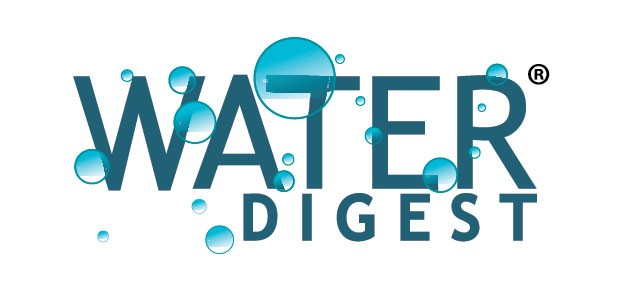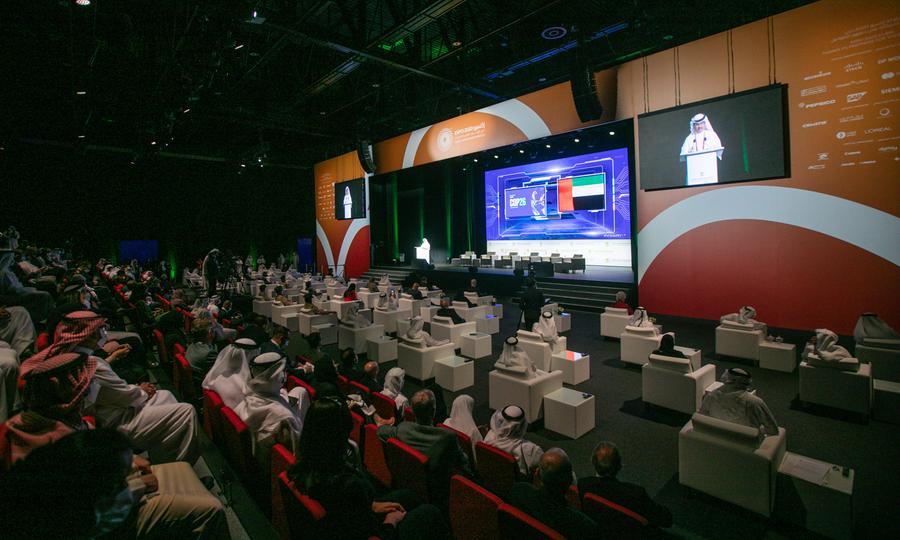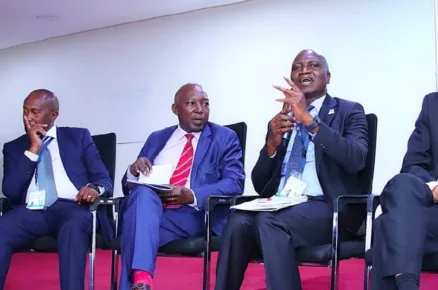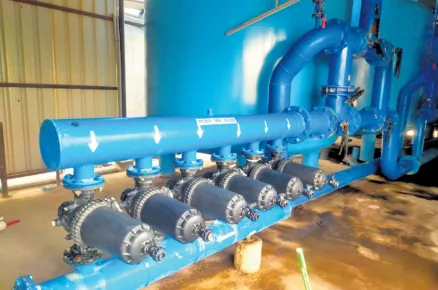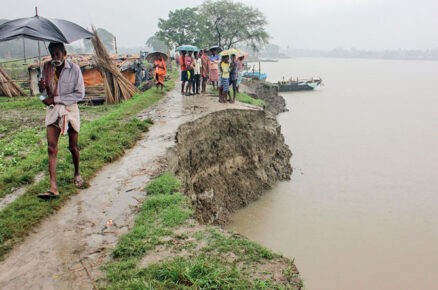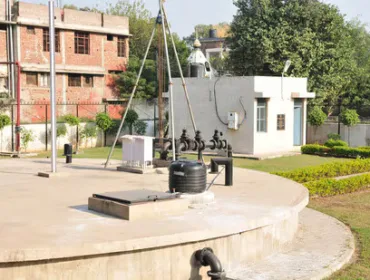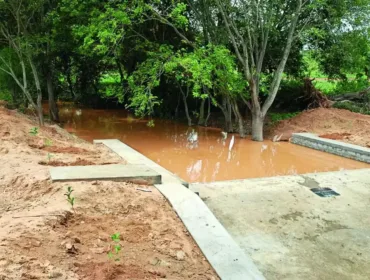Dubai, UAE: The 8th World Green Economy Summit (WGES) held on August 28-29, 2022, discussed green urbanism, and the importance of designing cities to be smarter and more sustainable in dealing with climate change.
It also addressed the importance of promoting the resilience and competitiveness of cities to enhance their capacity in dealing with climate risks and advance the quality, welfare, and happiness of individuals.
WGES 2022 was held under the patronage of HH Sheikh Mohammed bin Rashid Al Maktoum, Vice President and Prime Minister of the UAE and Ruler of Dubai and organised by Dubai Electricity and Water Authority (DEWA) and the World Green Economy Organisation (WGEO) at the Dubai World Trade Centre.
WGES attracts local and international VIPs, including presidents and government leaders, in addition to a large number of speakers, officials, representatives of government organisations, media professionals, experts, and academics every year.
Participants highlighted the importance of creating a smart environment in cities, consolidate sustainability, raise the level of resilience in performance, in light of rapid changes worldwide due to the changing populations and scarcity of resources. 55% of the global population live in cities and this number is expected to reach 70% in 2050, which means that 2.5 billion more individuals will live in urban areas in the future.
The convening of the WGES in Dubai is an opportunity to take a closer look at the inspiring model established by the Emirate in adapting to climate. In 2021, Dubai was ranked first globally for its resilience and recognised as a role model for sustainability by the United Nations Office for Disaster Risk Reduction. The award is given to the best cities in the efficiency of their measures to enhance resilience and reduce risks.
HE Saeed Mohammed Al Tayer, Vice Chairman of the Dubai Supreme Council of Energy and Chairman of WGES, noted that the forward-looking vision of HH Sheikh Mohamed bin Zayed Al Nahyan, President of the UAE; and HH Sheikh Mohammed bin Rashid Al Maktoum, Vice President and Prime Minister of the UAE and Ruler of Dubai, has contributed to the UAE leading global rankings in several indicators.
Sound planning based on meticulous data analysis and full resilience in keeping pace with changes have helped the UAE become a global leader in several areas. Al Tayer said that the Dubai 2040 Urban Master Plan outlines an integrated future map for sustainable urban development. The people-centric plan focuses on human beings, improving the quality of life in Dubai, enhancing the global competitiveness of the Emirate to become the best city to live in the world.
“Various government and private organisations cooperate to help Dubai reduce carbon emissions significantly. Net carbon emissions in Dubai decreased by 22% during 2019 and 33% in 2020, exceeding the target percentage in the Dubai Carbon Abatement Strategy to reduce emissions by 16% by 2021. In 2019, Dubai received the Platinum Rating in the LEED (Leadership in Energy and Environmental Design) for Cities certification awarded by the US Green Building Council (USGBC).
This makes Dubai the first city in the Arab world and the Middle East and North Africa (MENA) region to receive this prestigious certification. As part of our efforts to achieve the Dubai Clean Energy Strategy 2050 and the Dubai Net Zero Carbon Emissions Strategy 2050 to provide 100% of Dubai’s total power capacity from clean energy sources by 2050, we have world-leading projects in clean and renewable energy. These include the Mohammed bin Rashid Al Maktoum Solar Park, the largest single-site solar park in the world and the Green Hydrogen project. As part of the Hatta Development Plan, we are implementing the ‘Dubai Mountain Peak’ and the ‘Hatta Sustainable Waterfalls’ projects according to the highest international environmental standards, leveraging state-of-the-art technology and considering the unique geology of the Hatta region,” added Al Tayer.
“Pursuing sustainable economic development and building a better future for the current and next generations are strategic priorities of the UAE. We seek to achieve these goals through establishing an integrated legislative framework, coupled with initiatives and programs that promote the transition to an inclusive green economy. Mainstreaming green urbanism practices and designing resilient cities are key enablers of our climate change mitigation and adaptation drive and will contribute to achieving the UAE Net Zero by 2050 Strategic Initiative,” said HE Mariam bint Mohammed Almheiri, Minister of Climate Change and Environment.
The Minister applauded WGEO’s choice of green urbanism as the main topic of discussion in the 8th edition of WGES, underscoring the future-centred approach of the UAE under the leadership of its President His Highness Sheikh Mohamed bin Zayed Al Nahyan.
This vision has strengthened the UAE’s global position as one of the leaders in green economy. It proactively announced its strategy to achieve carbon neutrality by 2050, becoming the first country in the MENA region to join global action to achieve carbon neutrality,” said HE Abdulla Mohammed Al Basti, Secretary-General of the Executive Council of Dubai.
“That Dubai adopts an organised urban approach, where nature reserves represent 31% of the Emirate’s area. It also seizes opportunities to invest in various vital sectors related to the circular and sustainable economy to enhance the happiness of the population. This is in line with the continuous directives of His Highness Sheikh Hamdan bin Mohammed bin Rashid Al Maktoum, Crown Prince of Dubai and Chairman of the Executive Council, which underlines the importance of developing a leading economy and taking important steps towards providing the required solutions. Today, the World Green Economy Summit plays a vital and pioneering role in this field at the global level.” added Al Basti.
“In accordance with the directives of His Highness Sheikh Mohammed bin Rashid Al Maktoum, Vice President and Prime Minister of the UAE and Ruler of Dubai, Dubai Municipality is working as one of the leading entities in implementing the plans of the Emirate of Dubai, aiming to make it a global hub for clean energy and the green economy, as well as a model city to lead a quality life, by adhering to the Dubai Clean Energy Strategy 2050. The municipality is continuously implementing quality initiatives in all its sectors, whether environmental or urban, adopting the Dubai Clean Energy Strategy in all infrastructure projects. These include uses of green buildings systems in addition to Artificial Intelligence in the construction materials and products division,” said HE Dawoud Al Hajri, Director General of Dubai Municipality.
“As part of our commitment to achieve the vision of His Highness to plant more trees in Dubai and make the Emirate greener, we have 13 qualitative projects this year across Dubai’s roads and roundabouts of over 2 million square metres. This includes 10 projects for automatic irrigation with lines extending to 1,300 metres. Sub-irrigation lines will reach 621,000 metres by 2030,” added Al Hajri.
Source: WGES
Pics source: www.zawya.com
